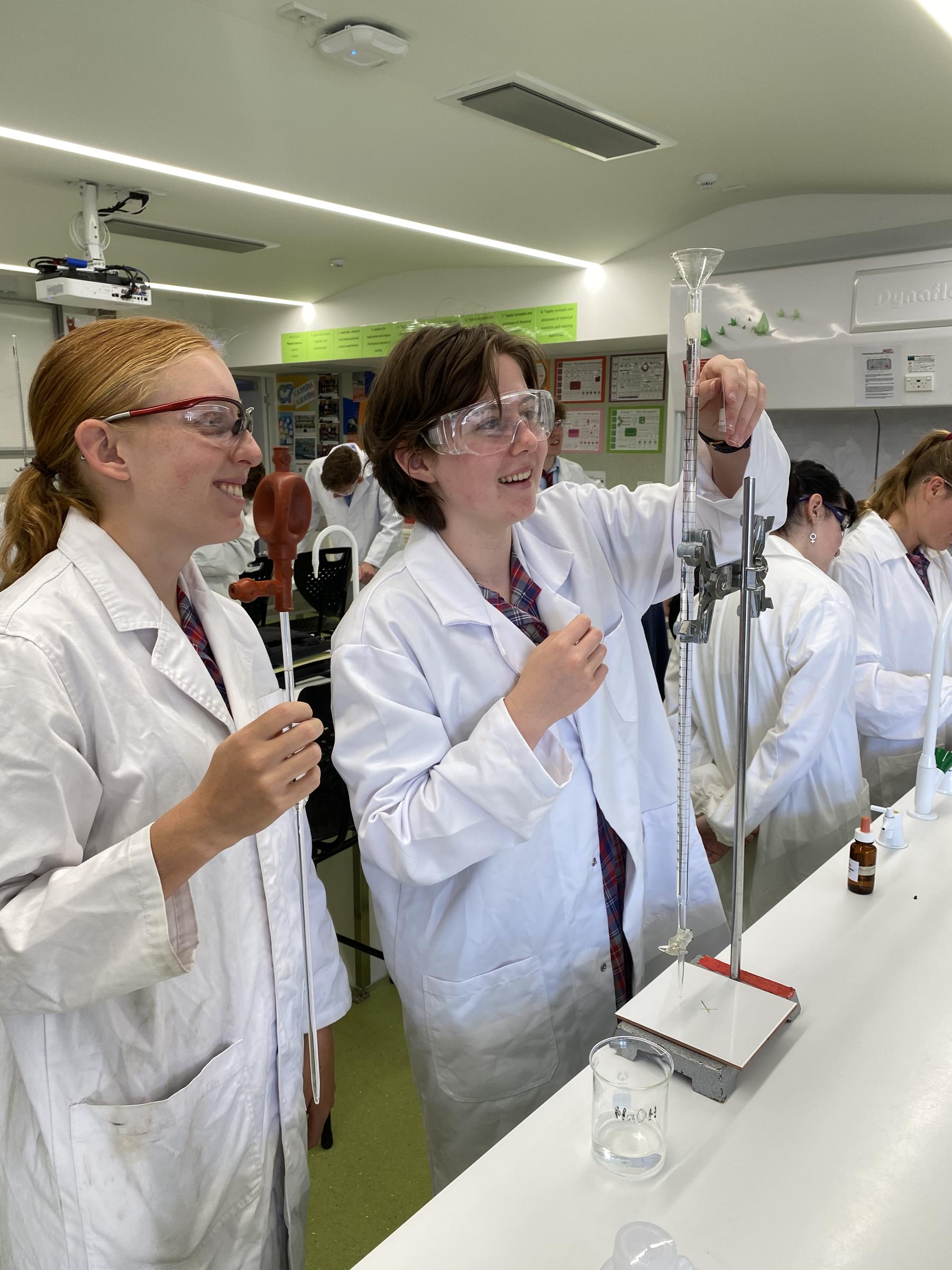TCE Chemistry Level 4

TCE Chemistry Level 4
| 🎓Course Type | Pre-tertiary |
|---|---|
| TASC Code | CHM415115 |
| TCE Points | 15 |
| ⏱Hours | 150 |
| ✔️Standard | Mathematics (Numeracy) |
| 📚Prerequisites | It is expected that students following this syllabus would have successfully studied Physical Sciences Level 3 in the previous year. Additionally, a sound background in mathematics such as that provided by Mathematics Methods (or at a minimum General Mathematics) is required. |
📎Desirable prior experiences | nil |
| 📝Assessment | Internal - ongoing against criteria External - 3 hour examination |
What will I learn?
This syllabus is designed for Year 12 students proceeding to further study in Chemistry but would also be useful for students interested in obtaining a general background in the subject. It builds on the introduction to Chemistry given in Physical Sciences. The treatment of the major topics in Chemistry emphasises understanding, the development of language and computational skills necessary for the study of Chemistry, and extensive practical work.
The topics for study are:
- Electro chemistry (including corrosion)
- Quantitative chemistry
- The chemistry of carbon and its organic compounds
- Electronic structure and the Periodic Table
- Gases and the Kinetic Theory
- Energy associated with chemical change
- Rates of reaction
- Chemical equilibrium (including acids and bases)
Why should I consider this course?
The purpose of science education is to develop scientific literacy, helping learners:
- to be interested in, and understand, the world around them;
- to engage in discourse about the scientific and technological aspects underlying global and local issues;
- to understand the testable and contestable nature of science, and question the claims made by others about scientific matters;
- to be able to identify questions, draw evidence-based conclusions and discuss their validity; and
- to form opinions, that are reasoned and informed, about the environment, about their own health and well-being, and about the role and impact of science on society.
Chemists can use an understanding of chemical structures and processes to adapt, control and manipulate systems to meet particular economic, environmental and social needs. This includes addressing the global challenges of climate change and security of water, food and energy supplies, and designing processes to maximise the efficient use of Earth's finite resources. Studying Chemistry provides a learner opportunity to explore key concepts, models and theories through active inquiry into phenomena and through contexts that exemplify the role of chemistry and chemists in society. The study of chemistry provides a foundation for undertaking investigations in a wide range of scientific fields and often provides the unifying link across interdisciplinary studies. Learners will become more informed citizens, able to use chemical knowledge to inform evidence-based decision-making and engage critically with contemporary scientific issues.
What Skills does this course provide?
This course will develop students’:
- interest in and appreciation of chemistry and its usefulness in helping to explain chemical phenomena and solve problems encountered in their ever-changing world
- understanding of the concepts, models and theories that may be used to describe, explain and make predictions about chemical systems, structures and properties
- understanding of the factors that affect chemical systems, and how chemical systems can be controlled to produce desired products
- appreciation of chemistry as an experimental science that has developed through independent and collaborative research, and that has significant impacts on society and implications for decision making
- expertise in developing and conducting a range of scientific investigations, including the collection and analysis of qualitative and quantitative data and the interpretation of evidence
- ability to critically evaluate and debate scientific arguments and claims in order to solve problems and generate informed, responsible and ethical conclusions
- ability to communicate chemical understanding and findings to a range of audiences, including through the use of appropriate representations, formats, language and nomenclature
What Pathway Options does this course provide?
An understanding of chemistry is relevant to a range of careers, including those in forensic science, environmental science, engineering, medicine, pharmacy, health science and sports science. Additionally, chemistry knowledge is valuable in occupations that rely on an understanding of materials and their interactions, such as art, winemaking, agriculture and food technology. Studying Chemistry will provide a foundation to pursue tertiary studies in science or a related discipline.
